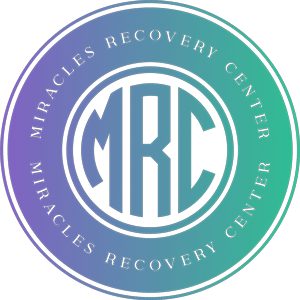Embarking on the path to recovery from benzodiazepine dependency is a challenging yet rewarding journey. In Port St Lucie, individuals find unique resources and support tailored to their needs. This blog aims to unpack the various stages of recovery and provide insightful information on what individuals can expect through this transformative process.
Understanding Benzodiazepine Dependence
Benzodiazepines are prescribed for their calming effects, but over-reliance can lead to dependency. Recognizing the signs of dependence is the first step towards recovery.
These medications are often used to treat anxiety, insomnia, and several other disorders. However, the body can quickly develop tolerance, leading individuals to consume higher doses for the same effect. As the lines between therapeutic use and dependence become blurred, recognizing the addiction is crucial. This dependency can manifest as an overwhelming urge to take the medication, inability to reduce usage, and experiencing withdrawal symptoms when the medication is not taken. Understanding these patterns is vital in taking the initial steps towards seeking help.
In the context of Port St Lucie, many have found solace in understanding that they are not alone. Community initiatives aim to spread awareness and debunk the stigma around dependence, making it easier for individuals to reach out for assistance without fear of judgment.
The Importance of Professional Guidance
Seeking professional help is crucial in the recovery process. Experts in Port St Lucie provide personalized treatment plans to address both the physical and psychological aspects of benzodiazepine withdrawal.
Therapists and medical professionals work together to create comprehensive treatment strategies. These plans often include medically supervised detox and ongoing counseling sessions. Detoxification is an intensive process aimed at safely eliminating drugs from the body while minimizing withdrawal symptoms. It can be the most physically trying stage of recovery, and having a medical team to monitor the process can make a significant difference.
Beyond detox, therapy plays a critical role. Cognitive-behavioral therapy (CBT) is widely used to address the underlying issues that might have contributed to the development of dependence. It helps individuals reframe negative thought patterns and develop effective coping strategies, ultimately empowering them to manage stressors without reverting to substance use.
Stages of Benzodiazepine Withdrawal and Recovery
Understanding the stages of withdrawal helps set realistic expectations. Starting with acute withdrawal symptoms, the process gradually moves toward stabilization and long-term recovery.
The acute phase typically begins within hours to a couple of days after the last dose and can last for several weeks. Symptoms may include anxiety, headaches, and sleep disturbances. Some individuals might experience more severe symptoms, such as seizures or severe mood swings, which underscore the need for professional supervision.
After the acute phase, individuals enter the early abstinence phase, where some symptoms may linger but are usually less intense. This stage tests one’s resilience, as cravings and emotional challenges persist. However, with continued support and engagement in therapeutic activities designed for relapse prevention, individuals can gradually regain a sense of control.
Building a Supportive Community
A supportive community plays a vital role in recovery. Port St Lucie offers support groups and community initiatives that foster connection and provide encouragement.
Peer support groups can be immensely beneficial, offering individuals the chance to share experiences and gain insights from others facing similar challenges. They often become a space of empathy, understanding, and shared commitment to sobriety. In Port St Lucie, several community-based programs are dedicated to facilitating these connections, emphasizing the importance of interpersonal relationships in recovery.
The community also extends beyond formal groups. Family and friends, when well-informed, can provide the love and encouragement necessary to sustain motivation. By engaging in educational resources, they can better understand the nuances of benzodiazepine dependence, allowing them to offer more meaningful support.
Holistic Approaches to Recovery in Port St Lucie
Recovery is not just about managing withdrawal. Integrating holistic approaches, including mindfulness and nutrition, can enhance the recovery experience and overall well-being.
Mindfulness practices, such as meditation and deep breathing exercises, have been shown to reduce stress and improve emotional resilience. These techniques are a cornerstone of holistic recovery, fostering a deeper awareness and connection to one’s body and mind. Moreover, they provide a practical tool for managing cravings and reducing anxiety, making the recovery journey more manageable.
Nutrition also plays a pivotal role in recovery. A balanced diet can significantly impact mood stability, physical health, and energy levels. Resources in Port St Lucie often emphasize the importance of nutritional counseling as a supplement to traditional therapy. By focusing on whole foods, lean proteins, and adequate hydration, individuals can support their body’s natural healing processes, reinforcing their journey towards sobriety.
Port St Lucie also offers access to outdoor activities, allowing individuals to embrace nature, which is another holistic avenue that complements the journey to recovery. Engaging with nature through activities such as hiking, gardening, or simply enjoying the ocean breeze can provide not only physical benefits but also mental clarity and peace, further aiding in the recovery process.
Finding Hope and Support in Port St Lucie: A Bright Future in Recovery
Recovery from benzodiazepine dependency is a personal and often challenging journey, but with the right support and approaches available in Port St Lucie, individuals can find hope and healing. By understanding the stages of recovery and embracing the resources and community support available, individuals can confidently move towards a healthier, more fulfilling life.





